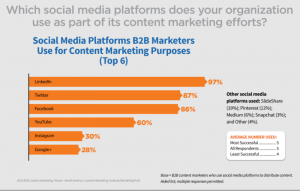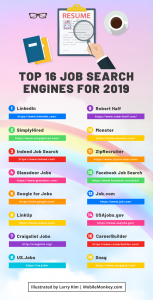Stagwell Feels The Need For Speed In Brand Tracking
![]()
Stagwell, which has been in the process of integrating a variety of related units to improve products and gain efficiencies, is doing so once again — this time merging flagship consumer research division The Harris Poll with cutting-edge software and advisory service Maru Group.
The move will provide better technology as well as analysts that will help turbocharge Harris’ burgeoning self-serve, always-on brand tracking service, as well as other consumer research services, Harris Co-CEO John Gerzema tells MediaPost.
Stagwell acquired Harris from Nielsen in 2017 with a goal of making it the centerpiece of its consumer intelligence operations, and to grow new products and services to expand its revenue base.
In June, it reorganized Harris, integrating it with political marketing and reputation management units SKDK, Targeted Victory and Sloane & Co. into a new “Risk and Reputation” unit to help mainstream brands navigate a new consumer mindset: “The political brain.”
Last year, Stagwell acquired Maru Group and placed it under its burgeoning Stagwell Marketing Cloud operations to provide both full-service, as well as “do-it-yourself” self-service research and polling solutions for clients.
The integration of Harris and Maru also falls under the Stagwell Marketing Cloud, and is an expansion of Stagwell’s goal of developing “research as a service” software products and solutions.
The most immediate impact, Harris’ Gerzema says, is to accelerate Harris fledgling “always-on” consumer brand tracking service.
“Our whole focus has been on speed,” Gerzema explains, noting, “We created internet polling back in the day. And then overnight polling. And for the past two years, we’ve been building a really robust, always-on data platform called Harris Brand Platform, which is a self-service tool that allows clients to do their own brand tracking.
“What it does is allows you to see how your brand attributes are moving in real-time, which has huge implications for campaign management, crisis management and those types of things. And that’s become a real successful product for us.”
Gerzema says the fledgling unit already has 130 clients using it – from startup brands to Fortune 500 companies – and that one of the important parts is that they are all working with standardized, proprietary tracking metrics developed by Harris in order to consistently understand their relative brand performance across the consumer marketplace.
Typically, clients open their own self-serve accounts, create a terminal and allocate it to their internal staff, as well as their agencies, so they can all be on the same page across a variety of consumer brand equity measures, including conventional KPIs, as well as “funnel metrics” and “brand perceptual mapping.”
By integrating Maru’s software products and developers, as well as its team of marketing research “practitioners,” Gerzema says the goal is to broaden Harris’ resources to both expand its research-as-a-service services, as well as grow the advisory part of its business.
“We already have lots of self-service tools that clients can use, but sometimes clients need to understand what the data means, and that’s where our consulting group comes in.”
Importantly, Gerzema says new software and tech solutions are also making self-serve research services “more affordable,” enabling Harris to expand its client base into smaller, startups and direct-to-consumer brands that may not have the resources for sophisticated in-house research units.
Gerzema declined to provide details on the product’s rate card, other than to say it is SaaS (software as a service) model-based.
“It’s at a fraction of the cost that a client would spend on a traditional brand tracker,” says Gerzema, who previously ran WPP’s BAV (Brand Asset Valuator) consulting unit. “What it does is provide an affordable entry-level point to understand how your brand is performing in the marketplace.”
(6)
Report Post





